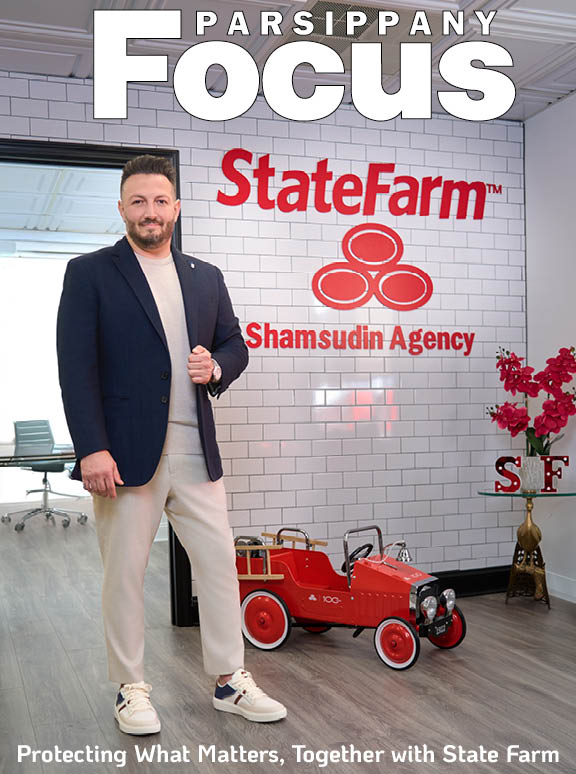PARSIPPANY — Mack-Cali Realty Corporation has made an application to the Township Clerk for a Person-to-Person Transfer of a Plenary Retail Consumption liquor license.
The application indicates it will be used for a restaurant, and will be issued in the name of Hanover Hospitality Corp, and will remain a pocket license until such time a physical location is secured to transfer the license.
The license is being purchased from the owners of the former Chand Palace, 189 Littleton Road.
The application will be on the agenda of the Parsippany-Troy Hills Council meeting on Tuesday, January 24.
Other than this license, there are no other licenses currently available within the Township of Parsippany-Troy Hills.

Recently, it has been rumored that Mack-Cali will repurpose office buildings off of Route 202 and Route 10. The plan, according to some, is to turn one of the Campus Drive Mack-Cali building into 97 apartment units and store-fronts at the main level. There was also talk about bringing a upscale restaurant within the complex.
Parsippany officials won’t say if any empty Mack-Cali office buildings are being considered for housing complex.
Recently, 1515 License, LLC., purchased a Plenary Retail Consumption license and is also a pocket license. 1515 lists an address in Bexley, Ohio, which is the same address as Stanbery Development, which is planning to build a multi-use project at 1515 Route 10 East. The Parsippany-Troy Hills Planning Board will be hearing their application in upcoming months.
A license which becomes inactive and is no longer sited at a business premises becomes a “pocket” license. At the time a pocket license is reactivated, the licensee must file an application for a place-to-place transfer of the license so that it may be sited at the new active business address.
The license must be used within the borders of Township of Parsippany-Troy Hills. According to a recent OPRA request, the Township of Parsippany-Troy Hills has 44 establishments with liquor licenses.
There are six, Class 31 which is defined as a “Club license.” American Legion, Elks Club, Lake Hiawatha Fire Department are some examples of establishments with this type of license. This license may only be issued to a non-profit organization that has a minimum of sixty (60) votin[l members and has been in active operation and has been in possession of its clubhouse for three (3) continuous years.
There is one, Class 32 which is defined at a “Plenary Retail Consumption License with Broad Package Privilege” Basket of Cheer is an example of an establishment with this type of license. This license is a Plenary Retail Consumption License, except the sale of package goods is not restricted to the principal public barroom. This “broad package privilege” was added to certain Plenary Retail Consumption Licenses in 1948, and those licenses continue to retain that privilege. These licenses are counted with the Plenary Retail Consumption Licenses for the purposes of the population cap limitation.
There are 23, Class 33 which is defined at “Plenary Retail Consumption.” Houlihans, Outback Steakhouse, The Inn Crowd, Buffalo Wild Wings are examples of establishments with this type of license. This license permits the sale of alcoholic beverages for consumption on the licensed premises by the glass or other open container. The license also allows the sale of package goods for consumption off the licensed premises.
There are eight, Class 36 which is defined as “Plenary Retail Consumption (Hotel/Motel Exception)” Holiday Inn, Sheraton Parsippany hotel and Hyatt House are examples of establishments with this type of license. This license may be issued to a person or business entity who operates a hotel or motel containing at least 100 guest sleeping rooms. A municipality may issue this license even though a new consumption license cannot be issued in the municipality due to the limitation on licenses by population.
And there are six, Class 44 which is defined as “Plenary Retail Distribution” Shop Rite of Parsippany, Green Hill Liquors are examples of establishments with this type of license.
The issuance of new Plenary Retail Consumption Licenses (including Seasonal Licenses) and Plenary Retail Distribution Licenses is restricted by population. No new Plenary Retail Consumption License or Seasonal Retail Consumption License may be issued in a municipality unless and until the combined total number of such licenses existing in the municipality is fewer than one for each 3,000 of its population as shown by the last preceding federal census, and no Plenary Retail Distribution License may be issued in a municipality unless and until the number of such licenses existing in a municipality is fewer than one for each 7,500 of its population as shown by the last preceding federal census















